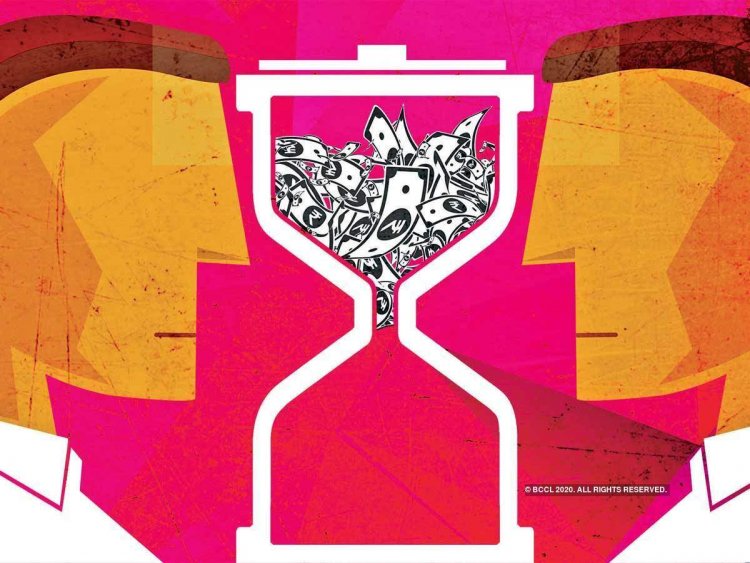The State-Central Brawl over GST in India

This year has brought a host of economic challenges for India and the matter seem to be getting worse with the government telling states it has no money to pay their share of Goods and Services Tax (GST) revenues.
This is the first time since the inception of the indirect tax reform in 2017.
Union Finance Secretary Ajay Bhushan Pandey recently told the Parliamentary Standing Committee on Finance that the central government is in no position to pay states’ share of GST under the formula laid down in the GST Act.
His statement has already created ripples as opposition leaders have already started criticising the Centre over GST.
Key Points
- The Centre had released the final instalment of Rs. 13,806 crore of GST compensation for the FY 2019-20.
- It comes as a relief for States seeking to finance efforts to ramp up public health-care capacity and contain Covid-19 effects.
- For the FY 2020-21, there is going to be a revenue shortfall due to the pandemic.
- Even the GST collections for March 2020 also saw a dip.
For such times, the GST Act has provisions to rework the formula for paying compensation to the State governments if the revenue collection drops below a certain threshold.
Why should the Centre pay states?
Under the GST law, states were guaranteed to be paid for any loss of revenue in the first five years of the GST implementation from July 1, 2017. The shortfall is calculated assuming a 14 percent annual growth in GST collections by states over the base year of 2015-16. States are promised compensation for any revenue shortfall till 2022, in case they go below the 14 percent annual growth since the GST rollout in 2017.
After the implementation of GST, states lost the ability to raise revenues as most were subsumed under GST. Revenue would now be collected in states where goods and services were being consumed instead of states where it was being produced. This change led to states facing revenue uncertainty.
And to address this issue, the GST (Compensation to States) Act was enacted in 2017 on the recommendation of the GST Council.
A GST compensation cess on certain luxury and sin goods such as cigarettes and tobacco products, pan masala, caffeinated beverages, coal, and certain passenger vehicles is levied by the Centre. According to the GST Act, the Centre has to credit this cess revenue into a separate Compensation Fund. All compensation grants to states are required to be paid out of the money available in this fund.
Why has the Centre delayed payments?
In 2019-20, passenger vehicles sales fell by as much as 18 percent. Coal offtake from domestic coal companies reduced by nearly 5 percent on year. Thus, cess collections grew by 0.4 percent in 2019-20. But the compensation requirements of states increased by 104 percent, resulting in a shortfall of funds of nearly Rs 70,000 crore.
The states faced a delay in payment of compensation as Centre did not have sufficient funds. The funds raised by levying a compensation cess on the sale of certain goods, was affected by the economic slowdown.
How will Centre pay states then?
The 2020-21 Budget estimated a 10 percent growth in nominal GDP. But the outbreak of Covid-19 and the lockdown imposed to contain it, the actual growth in 2020-21 is being projected to be much lower.
The GST revenue of states would also be much lower than expected, thus leading to a higher compensation requirement. But the Centre would be able to pay compensation demands depending on the cess collected, which are also expected to be hit this fiscal.
One of the measures being considered to compensate states adequately is through market borrowing which would be repaid through future cess collections. To do this, the GST Council can recommend levying of cess beyond the five year period - after June 2022.
The other options before the council could be to rationalise GST rates, cover more items under the compensation cess or increase the compensation cess, or recommend higher borrowing by states to be repaid by the future collection into the compensation fund.
Can states take Centre to court?
The law mandates that the Centre should compensate states for revenue shortfall, making the central government legally liable. States have warned that if the Centre fails to honour the commitment, they would have no option but to take it to court.
The Centre had in March sought views from Attorney General K.K Venugopal on the legality of market borrowing by the GST Council to make up for any shortfall in compensation fund - a corpus created from levying compensation cess on luxury and sin goods to compensate states for the loss of revenue on account of their taxes being subsumed into GST.
The attorney general opined that the Centre has no statutory obligation to make up for any shortfall in GST revenues of states from its coffers.
Earlier in August, Finance Secretary Ajay Bhushan Pandey informed the Parliamentary Standing Committee on Finance that the government was in no position to pay the GST share of states in keeping with the current revenue sharing formula.
Has the Centre paid states for FY 2019-20?
On July 27, the central government released more than Rs 1.65 lakh crore as GST compensation to states for 2019-20 financial year, including Rs 13,806 crore for March. The total amount of compensation released for 2019-20 is Rs 1.65 lakh crore, whereas the amount of cess collected during the year was Rs 95,444 crore.
There are some points that have resulted in the problem:
Falling GST revenues: As noted earlier, GST revenue collections had been falling since last year and has reached a point of stagnation. While the government expected GST collections to top Rs 1 lakh crore with rising GST return filing, it has happened hardly four times. Whatever revenue was coming before the pandemic has been completely dismantled due to the ongoing coronavirus crisis. It may be noted that GST payments to states for this financial year have been pending since April.
Compensation conundrum: States have been raising concern about GST payments since last year. While GST payments till March 2020 have been cleared, it is unlikely that the government will be able to compensate states thereafter due to a decline of over 40 per cent in GST revenue collection in the quarter ended June. It is worth mentioning that the total compensation released for the year 2019-20 was slightly more than 1.65 lakh crore, but the collection under compensation cess fund was just Rs 95,444 crore, indicating that payments made to states were much higher than the actual collection.
Compensation formula: According to GST Compensation rules, each state has to be compensated for any revenue loss less than the annualised compounded growth rate of 14 per cent from the base year 2015-16 for five years since the GST rollout. The gap between protected revenue and GST revenue has to be considered for calculating the pay-out. It may be noted that the protected revenue is calculated at 14% growth per annum on the base year figure of 2015-16 of the taxes subsumed in GST as mentioned earlier.
But since compensation payments are getting delayed due to a sharp revenue short fall, such payments to states are getting delayed. Releasing the compensation for 2019-20 to states has already put pressure on the Centre, which said that to release compensation for 2019-20, the balance cess amount during 2017-18 and 2018-19 was also utilised. In addition, the central government had transferred Rs 33,412 crore from the Consolidated Fund of India to the Compensation Fund to make up for the shortfall.
Compensation double of collection: The government has also prepared a background note where it admitted the rising GST compensation problem much before the coronavirus-triggered economic slowdown. The government said in the note that it realised the “impending precarious position in paying GST compensation to the states and UTs as the compensation cess requirement was being double of the average monthly cess collection”. The note went on to suggest that the average monthly GST compensation cess requirement was nearly Rs 14,000 crore while the actual collection was in the range of Rs 7,000-8,000 crore per month.
Opposition parties unhappy: Opposition parties and state finance minister had been unhappy with late GST payments since last year. Many finance ministers had written to the finance ministry expressing dissatisfaction over the matter. Now with the Centre indicating that it will not be able to pay GST compensation to states, opposition parties have already reminded the government about the compensation cess formula and also about the huge costs they are incurring due to the coronavirus crisis in the country.
The chief solution officials have suggested the Centre to raise special loans against future GST cess accruals (an amount of money that accumulates) in order to help meet its compensation promise to States.
The pandemic has thrown multiple challenges in front of the Centre and the States. They need to have more certainty and clarity on the cash at their disposal which would help them to battle the virus more effectively.
There is a need to boost the economic growth of the country and the government needs to think about the ways through which it can increase GST collections.















































